Magdalena Maria Kubas, “Un contrappunto visivo-sonoro: l’anafora metrica e sintattica ne La Libellula rosselliana,” Quaderni del ‘900 16 (2016).
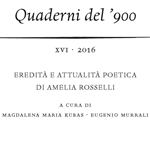

Magdalena Maria Kubas, “Un contrappunto visivo-sonoro: l’anafora metrica e sintattica ne La Libellula rosselliana,” Quaderni del ‘900 16 (2016).
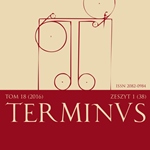
Anna Czarnowus, “Litanic Tradition in Of on that is so fayr and bright and the Harley Ms Five Joys of Mary,” Terminus 18 (2016), 1 (38). This article discusses the influence of Litanies of the Saints on Middle English lyrics, which is exemplified by Of on that is so fayr and bright (New Index No. […]
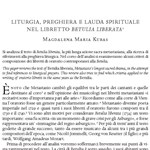
Magdalena Maria Kubas, “Liturgia, preghiera e lauda spirituale nel libretto Betulia liberata,” Studi sul Settecento e l’Ottocento, 12 (2017).
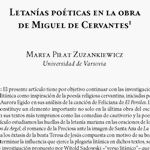
Marta Piłat-Zuzankiewicz, “Letanías poéticas en la obra de Miguel de Cervantes,” in: En torno a Cervantes: Estudios sobre la época y la obra del autor del Quijote. Homenaje al Profesor Kazimierz Sabik, ed. M. Piłat-Zuzankiewicz (Warsaw: Instituto de Estudios Ibéricos e Iberoamericanos de la Universidad de Varsovia, 2017). The present article aims to continue the research on […]

Magdalena Kowalska, “Litanies of a Name. The Holy Name of Jesus in the Sonnets of Anne de Marquets and Gabrielle de Coignard,” Journal of Academic Perspectives (2017) 2. This paper analyses the sonnets of two sixteenth-century poets, Gabrielle de Coignard and Anne de Marquets. The main theme of their literary works is Christian devotion, for […]
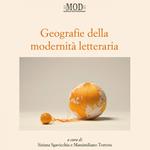
Magdalena Maria Kubas, “«Io ti percorro»: gli spazi del misticismo di Alda Merini,” in: Geografie della modernità letteraria. Atti del XVII Convegno Internazionale della MOD 10-13 giugno 2015, ed. Siriana Sgavicchia, Massimiliano Tortora (Pisa: ETS, 2017), vol. 1.
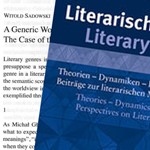
Witold Sadowski, “A Generic Worldview. The Case of the Chrotonope of Litany,” in: Literarische Form: Theorien – Dynamiken – Kulturen. Beiträge zur literarischen Modellforschung, ed. by Robert Matthias Erdbeer, Florian Kläger, Klaus Stierstorfer (Heidelberg: Universitätsverlag Winter, 2018). Literary genres involve not only semantic potential, but they also presuppose a specific worldview. In order to really recognize […]
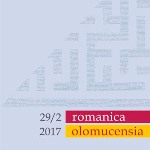
Magdalena Kowalska, “Prière litanique – litanie poétique. Les paraphrases françaises jusqu’au xixe siècle,” Romanica Olomucensia 29 (2017), issue 2. The paper analyses five examples of French litanic paraphrases from different periods: the medieval paraphrase La letanie from the Book of Hours of the Diocese of Evreux and the farce Le pèlerinage de marriage, Paraphrase des […]
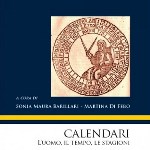
Magdalena Maria Kubas, “«Al partire quest’anima dal corpo»: la sospensione del tempo nel laudario di Santa Maria della Morte di Bologna,” in: Calendari. L’uomo, il tempo, le stagioni, ed. Sonia Maura Barillari, Martina Di Febo (Aicurzio: Castel Negrino, 2018).
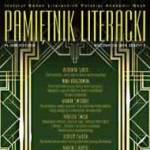
Witold Sadowski, “Krótka historia ‘O!’ (wokół utworu Julii Hartwig),” Pamiętnik Literacki 109 (2018), no 3. The paper presents the main evolutionary stages of the exclamation “O!” in European poetry from antiquity to modern times. A pretext for the research is Julia Hartwig’s poem “O!” in which “O” is both an initial element of the proper […]
THE PROJECT FINANCIALLY SUPPORTED BY THE NATIONAL SCIENCE CENTRE OF POLAND
e-mail:
wiersz AT uw.edu.pl
Witold Sadowski
Instytut Literatury Polskiej
Uniwersytet Warszawski
ul. Krakowskie Przedmieście 26/28
00-927 Warszawa
tel./fax 22 55 21 020
This website uses cookies to improve your experience while you navigate through the website. Out of these cookies, the cookies that are categorized as necessary are stored on your browser as they are essential for the working of basic functionalities of the website. We also use third-party cookies that help us analyze and understand how you use this website. These cookies will be stored in your browser only with your consent. You also have the option to opt-out of these cookies. But opting out of some of these cookies may have an effect on your browsing experience.
Necessary cookies are absolutely essential for the website to function properly. This category only includes cookies that ensures basic functionalities and security features of the website. These cookies do not store any personal information.
Any cookies that may not be particularly necessary for the website to function and is used specifically to collect user personal data via analytics, ads, other embedded contents are termed as non-necessary cookies. It is mandatory to procure user consent prior to running these cookies on your website.